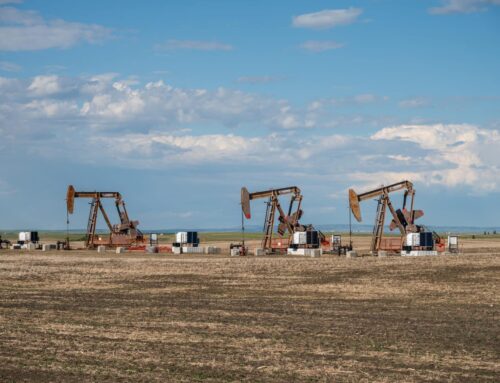The Renewable Fuel Standard (RFS), the government policy that mandates biofuels (mostly corn ethanol and soy biodiesel) be blended with U.S. transportation fuel, has saddled taxpayers with increased long-term liabilities and related costs while failing to deliver significant climate benefits. Biofuels have been falsely promoted as a way to help achieve U.S. energy independence, reduce greenhouse gas (GHG) emissions, and spur rural economic development.
After decades of federal subsidies and a mandate for consumption, the biofuels industry has failed to deliver climate benefits. Worse yet, the evidence shows continued support will only further increase climate harms. Despite the industry’s failures, agricultural producers, biofuels facilities, oil and gas companies, fueling stations, and others continue to reap taxpayer subsidies spread across several government agencies.
The first RFS was established in the 2005 energy bill. It required 7.5 billion gallons (BG) of renewable fuels to be blended by 2012. In the 2007 energy bill, the Energy Independence and Security Act (EISA), the RFS was greatly expanded to require 36 BG of biofuels to be consumed by 2022, but the industry will fail to meet Congressional targets by 2022.
Despite the RFS requirement, actual biofuels consumption has been significantly lower than envisioned when the mandate was enacted primarily due to the failure of the advanced biofuels industry to produce large volumes of cellulosic biofuels derived from non-food crops and residues (see Figure 1). As a result, Congressionally-set mandates must regularly be lowered by the Environmental Protection Agency (EPA) because there is not enough advanced biofuels production to meet the intended goals.
Because of this, the RFS has primarily been filled with first-generation, food-based corn ethanol and soy biodiesel even though Congress envisioned an increasing portion of the federal mandate to be met with next-generation, non-food-based biofuels. Production of corn- and soy-based biofuels has soared since the RFS was first enacted. Using food and feed for fuel (specifically, 40 percent of the U.S. corn crop each year) has resulted in higher food and fuel prices, greater taxpayer and consumer costs, and more climate and environmental liabilities as carbon-rich grasslands and wetlands were covered into row crop production.
Furthermore, most corn ethanol production was grandfathered into the RFS, meaning it was not required to meet even a minimum 20 percent GHG reduction threshold. Independent analysts found corn ethanol may actually increase GHG emissions. with questionable impacts for soy biodiesel as well. The National Academy of Sciences (NAS) thus concluded the RFS will fail to achieve its goals.
The future of the RFS remains uncertain with statutorily required volumes ending in 2022, Renewable Volume Obligations (RVOs) not being finalized on-time in recent years, the RFS failing to meet its climate goals, and an impending shift to electric vehicles on the horizon.
Download the full report here or scroll down to read below:











Get Social